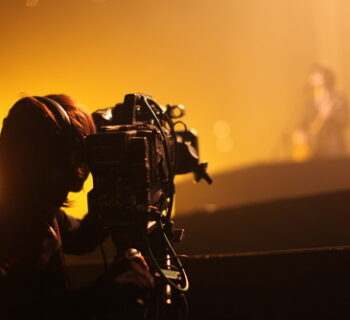 The Future of Concert Production: Exploring Emerging Technologies and Trends
The Future of Concert Production: Exploring Emerging Technologies and Trends
The COVID-19 pandemic has drastically changed the way the entertainment industry operates, from the way concerts are produced to how they are enjoyed by music lovers everywhere. The rise of social distancing measures has forced concert promoters, artists, and production companies to get creative with the ways they bring live music to their audiences, and this has led to the emergence of new trends and technologies that are shaping the future of concert production.
In this blog post, we will explore some of these emerging technologies and trends, and how they are likely to transform the concert production industry in the years to come.
1. Live Streaming
The most obvious trend that has emerged in the wake of the pandemic is live streaming. As concerts and other large gatherings were cancelled or postponed, musicians and promoters quickly pivoted to virtual events, using platforms like Facebook, YouTube, and Twitch to reach their audiences. While it’s unlikely that live streaming will replace in-person concerts altogether, it’s clear that it’s here to stay, and that more and more artists will use this technology to connect with their fans, even after the pandemic subsides.
2. Augmented Reality (AR) and Virtual Reality (VR)
Although still in its early stages, AR and VR technology has great potential for concert production. With AR, fans can experience live concerts in a more immersive way by layering computer-generated images and sound onto the real world. For example, fans could watch a virtual version of their favorite band performing in their living room, with the band appearing to be there with them. Meanwhile, VR can transport fans to a completely different space, allowing them to experience a concert as if they were really there.
3. 5G Networks
5G, the fifth generation of mobile networks, is poised to transform the way we consume media, including live music events. With its faster data speeds and lower latency, 5G will allow for high-quality live streaming, higher-resolution video, and more immersive experiences (such as AR and VR), all in real-time. While 5G is still in the early stages of deployment across the world, its potential for providing better, more seamless concert experiences is significant.
4. Drone cameras
Drones are already being used in the film industry to capture stunning aerial shots, and the technology is now being applied to the concert production industry as well. By attaching cameras to drones, concert producers can capture sweeping aerial shots of the stage, audience, and venue, giving fans a panoramic view of the concert experience. This technology also allows for more creative and dynamic camera angles, which can make for a more engaging viewing experience.
5. Holograms
Holographic technology, where lifelike images are projected in 3D, has been used in the music industry for several years, most notably with the holographic projection of Tupac Shakur at Coachella in 2012. While the technology is still somewhat limited, the use of holograms in live concerts has great potential, allowing for deceased artists to appear on stage once again, or for artists to perform in new and exciting ways.
6. Sustainability
Finally, sustainability is a growing concern for the concert production industry, with many companies and artists looking for ways to reduce the environmental impact of their events. One notable trend is the use of renewable energy sources, such as solar panels and wind turbines, to power concerts. Another is the promotion of eco-friendly practices, such as recycling and reducing single-use plastics.
Final Thoughts
The COVID-19 pandemic has accelerated the adoption of new technologies in the concert production industry, as producers and artists look for ways to continue providing live music experiences to fans in a world that has been transformed by social distancing measures. While it’s likely that live in-person concerts will resume at some point in the future, the emergence of these new technologies and trends means that the future of concert production will be even more exciting and innovative than before.





